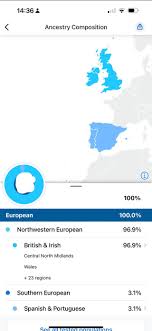
Introduction
In recent years, genetic testing has gained significant traction among consumers, with companies like 23andMe leading the charge. Founded in 2006, 23andMe provides individuals with information about their ancestry, genetic traits, and health predispositions through a simple DNA test. As individuals become increasingly interested in their heritage and personal health management, the relevance of such services has skyrocketed, sparking discussions around privacy, ethics, and the implications of genetic information.
What is 23andMe?
23andMe is a personal genomics and biotechnology company located in Mountain View, California. The service allows users to collect a saliva sample and send it to the company’s lab for analysis. Within a few weeks, customers receive reports on their genetic background, potential health risks, and traits linked to their DNA.
The Impact of the 23andMe Service
According to a report from a recent survey conducted by the American Society of Human Genetics, over 1 million individuals have utilized 23andMe’s testing services to date. These users gain insights into potential genetic predispositions for various conditions, such as late-onset Alzheimer’s disease or certain types of cancer. Moreover, the ancestry component of the service connects users with their geographic origins, offering a deeper understanding of their familial lineage and ethnic diversity.
However, the rise of such testing services is not without controversy. Privacy concerns have amassed as genetic data is susceptible to misuse if not handled properly. In response to these concerns, 23andMe has maintained a commitment to data security and user privacy, employing encryption and requiring explicit consent before sharing information with third parties, including pharmaceutical companies for drug research.
Recent Developments
In 2023, 23andMe has expanded its offerings, collaborating with several healthcare institutions to provide more comprehensive health reports and gene-based health management tools. Moreover, the company has seen a surge in interest due to its integration of artificial intelligence tools to enhance predictions on health outcomes based on genetic markers.
Conclusion
As 23andMe continues to grow, its implications for consumers are profound. Not only does it provide knowledge that can empower individuals to make informed health decisions, but it also raises important questions regarding privacy and the ethical use of genetic data. As the world leans more towards data-driven health solutions, the footprints of 23andMe will likely influence policies and personal choices for years to come. Consumers interested in understanding their genetic makeup can expect constant innovations in this field, making it a compelling area to watch.



